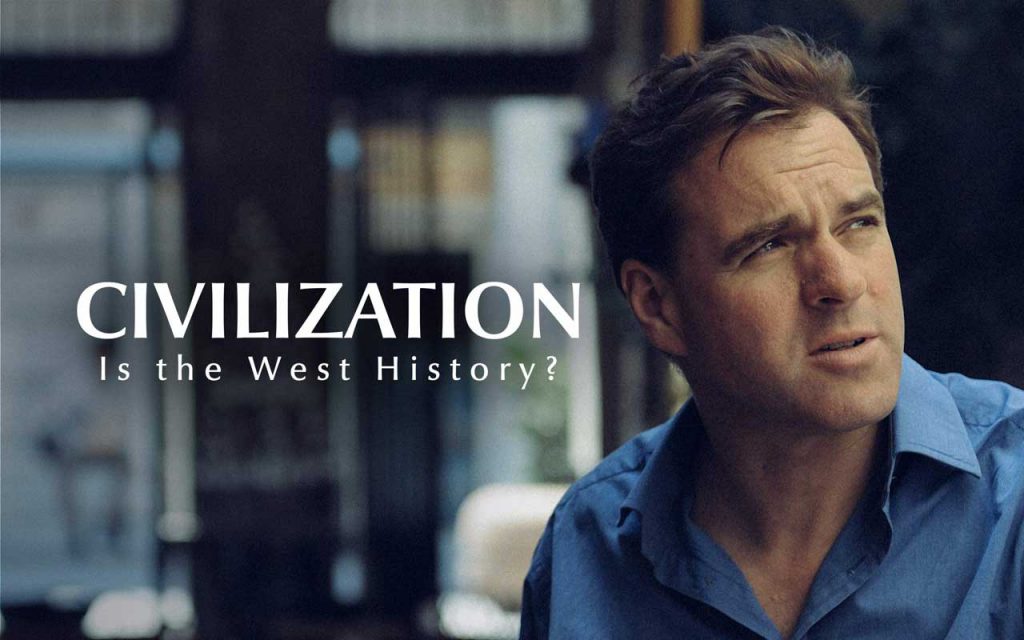Civilization: Is the West History episode 1: The first programme in the series begins in 1420 when Ming China had a credible claim to be the most advanced civilization in the world: ‘All Under Heaven’. England on the eve of the Wars of the Roses would have seemed quite primitive by contrast. Yet the lead that China had established in technology was not to be translated into sustained economic growth. In China a monolithic empire stifled colonial expansion and economic innovation. In Europe political division bred competition. The question for our own time is whether or not we have lost that competitive edge to a rapidly ascending Asia.
Niall Ferguson asks why it was that Western civilization, from inauspicious roots in the 15th century, came to dominate the rest of the world; and if the West is about to be overtaken by the rest. Ferguson reveals the ‘killer apps’ of the West’s success – competition, science, the property owning democracy, modern medicine, the consumer society and the Protestant work ethic – the real explanation of how, for five centuries, a clear minority of mankind managed to secure the lion’s share of the earth’s resources.
Ferguson’s conclusions are surprising and provocative. He reveals that while the killer apps have finally been downloaded by the rest, in the process Western civilization has lost faith in itself. And it is that loss of self-belief that poses the biggest threat to its continued predominance.
Civilization: Is the West History episode 1
Western culture, also known as Western civilization, Occidental culture, or Western society, is the heritage of social norms, ethical values, traditional customs, belief systems, political systems, artifacts and technologies of the Western world. Western values become the symbols of dominant mentality for the culture of Western societies that transcended through power and authority. The term applies beyond Europe to countries and cultures whose histories are strongly connected to Europe by immigration, colonization or influence. For example, Western culture includes countries in the Americas and Oceania. Western culture is most strongly influenced by Greek philosophy, Roman law, and Christian culture.
The expansion of Greek culture into the Hellenistic world of the eastern Mediterranean led to a synthesis between Greek and Near-Eastern cultures, and major advances in literature, engineering, and science, and provided the culture for the expansion of early Christianity and the Greek New Testament. This period overlapped with and was followed by Rome, which made key contributions in law, government, engineering and political organization.




